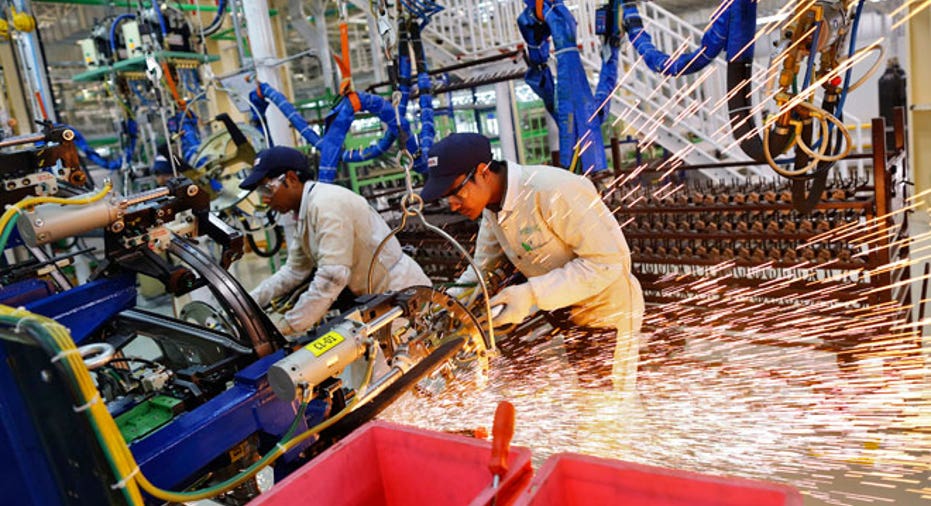Chamber's Donohue: Main Street Needs Ex-Im Bank

The following is an op-ed written by U.S. Chamber of Commerce President and CEO Thomas J. Donohue.
Nearly 1,000 small business owners and workers from mid-sized manufacturers are coming to Washington this week with one goal: To urge Congress to renew the charter of the Export-Import Bank of the United States (Ex-Im).
To these entrepreneurs and job creators, the inside-the-beltway debate over Ex-Im is hard to understand. Why would anyone want to shutter a small agency that directly supports American jobs and doesn’t cost the taxpayer a dime?
For eight decades, Ex-Im has provided loans, loan guarantees and export credit insurance to help cover financing gaps for American exporters. It’s one of the best tools that Main Street businesses have to win new sales in fiercely competitive global markets.
The Bank’s support is especially important to small and midsized businesses, which account for nearly 90% of its transactions. Tens of thousands of smaller companies that supply goods and services to large exporters also benefit from Ex-Im’s activities.
Take ProGauge Technologies, Inc. of Bakersfield, California, whose 100 employees manufacture steam generators, metering systems and manifold equipment necessary for the recovery of heavy oil. Founded in 1998, ProGauge began exporting with Ex-Im’s help in 2006, and exports now make up 65% of its revenue.
President Don Nelson explains, “Without Ex-Im, our bank would make us put up 100% collateral, and we would have no money available for operations. Nobody is going to take the place of Ex-Im.” Without Ex-Im, ProGauge’s revenues would fall by 75% and 50 to 60 workers would have to be laid off, he explains.
Or take Maryland-based Patton Electronics, whose 120 employees manufacture a wide range of data and telecommunications products. The firm today exports VoIP gateways, routers, and other connectivity devices to more than 100 countries.
Banks generally won’t accept foreign receivables as collateral for a loan, but Ex-Im guarantees change the equation. As President and CEO Bobby Patton explains, “The money my overseas customers owe me serves as collateral for loans I need to pay my employees and my suppliers until I get paid. More than 70% of our revenue comes from exports.”
Not only does Ex-Im directly support American jobs, but it operates at no cost to U.S. taxpayers. The Bank charges fees for its services and follows rigorous accounting and risk management standards. As a result, Ex-Im’s default rate has consistently been less than 2% over the past eight decades, a default rate lower than commercial banks.
Failure to reauthorize Ex-Im would amount to unilateral disarmament in the face of other governments’ far more aggressive export credit programs, which have provided 18 times more export credit assistance than Ex-Im did last year.
This reality is well understood at Acme Manufacturing Company, whose 65 employees make buffing, grinding and polishing machines. Founded in 1910, this Michigan-based company began exporting in the 1950s. Today, exports make up about half of Acme’s sales.
Acme CFO Tom McKaig recalls one occasion “when we could not meet our buyer’s financing terms. Then the German export credit agency stepped in to support our German competitor, and we lost the contract. Without Ex-Im, I estimate our sales would fall by between 20-35%, and so would our workforce,” says McKaig.
The jobs of more than 160,000 employees at 3,300 companies depend on Ex-Im. If Ex-Im’s charter is not renewed before it lapses on June 30, American companies would be put at a unique disadvantage in global markets, resulting immediately in lost sales and jobs.
When President Reagan signed the 1986 law reauthorizing the Bank, he wrote that it sent “an important signal to both our exporting community and foreign suppliers that American exporters will continue to be able to compete vigorously for business throughout the world.”
That’s true today as well. Ex-Im helps small businesses, fills a need in the market, returns a profit to the government and helps maintain our competitive edge in the global economy. It’s needed today more than ever.



















